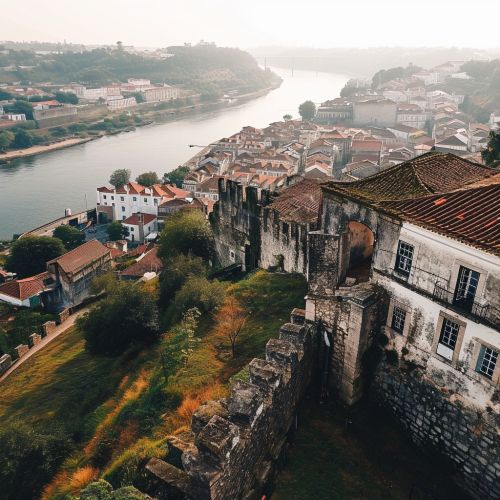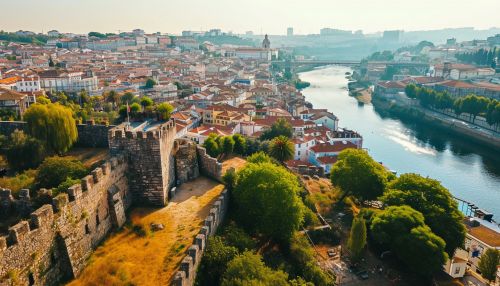History of Portugal
Early History
The history of Portugal can be traced back to the Early Middle Ages. In the 15th and 16th centuries, Portugal ascended to the status of a world power during the period of the Portuguese Discoveries, but the destruction of Lisbon in a 1755 earthquake, the country's occupation during the Napoleonic Wars, and the independence of Brazil, resulted in the loss of its status as a major power.


Prehistory and Antiquity
The early history of Portugal is shared with the rest of the Iberian Peninsula located in South Western Europe. The name of Portugal derives from the joined Romano-Celtic name Portus Cale. The region was settled by Pre-Celts and Celts, giving origin to peoples like the Gallaeci, Lusitanians, Celtici and Cynetes, visited by Phoenicians-Carthaginians, Ancient Greeks and ruled by the Romans, who were followed by the invasions of the Suebic and the Visigothic Germanic peoples.
Roman Lusitania and Gallaecia
Portugal as a separate country did not exist until the county of Portugal, a march of the Kingdom of León, became an independent kingdom in 1139. The initial municipalities were founded by the kingdom of León and the Galician kingdom in the 11th century, these towns were located in lands of the depopulated areas, as were the cases of Lisbon, Coimbra and Oporto.
Reconquista and Early County
During the Christian Reconquista, the County of Portugal was established as a fief of the Kingdom of León. This county developed into the Kingdom of Portugal, that was later acknowledged in 1143. The Kingdom continued to be governed by Counts, with the assistance of a manager and a council of nobles. This organization developed progressively into a regime of a royal court, with a sovereign (a king or a queen) and a parliament.
Kingdom of Portugal
The Kingdom of Portugal was proclaimed in 1139, and independence was recognized in 1143. During this period, Portuguese culture flourished, producing notable poets and authors as well as architects and painters. Portugal became an important player in the European maritime discoveries, developing a vast empire that extended from Brazil in the west to India in the east.
Portuguese Empire
The Portuguese Empire was the first global empire in history, and also the longest-lived of the modern European colonial empires, spanning almost six centuries from the capture of Ceuta in 1415 to the handover of Macau in 1999. The empire spread throughout a vast number of territories that are now part of 53 different sovereign states, leaving a legacy of over 250 million Portuguese speakers today.
Republic of Portugal
The monarchy was abolished in 1910, and the Portuguese First Republic was established. The republic was plagued by political instability, and was eventually replaced by the Estado Novo, a right-wing dictatorship. Democracy was restored after the Carnation Revolution in 1974, ending the Portuguese Colonial War. Shortly after, independence was granted to Angola, Mozambique, São Tomé and Príncipe, East Timor, Cape Verde and Guinea-Bissau.
See Also
History of Lisbon Portuguese Colonial War Carnation Revolution
